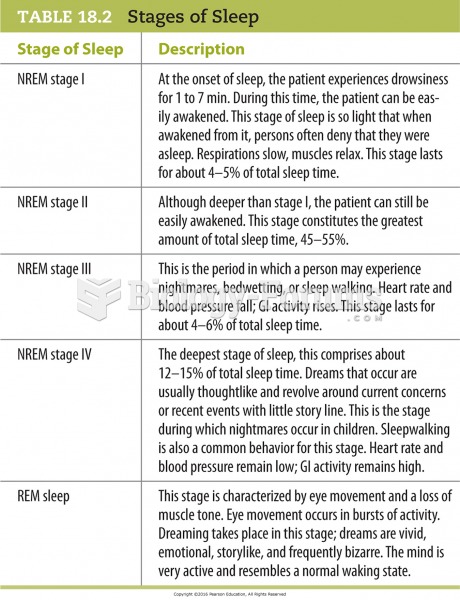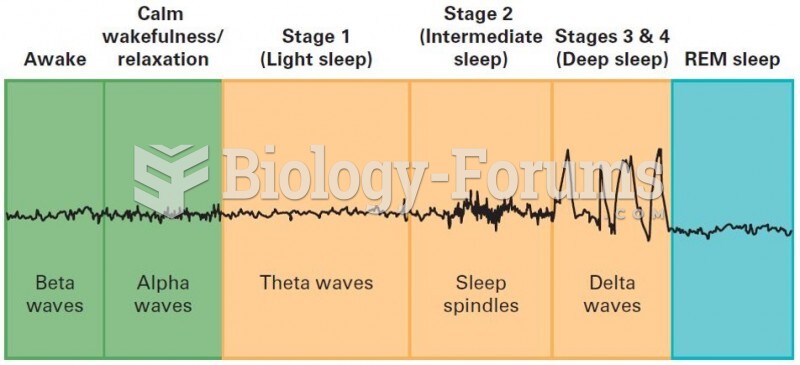This topic contains a solution. Click here to go to the answer
|
|
|
Did you know?
Since 1988, the CDC has reported a 99% reduction in bacterial meningitis caused by Haemophilus influenzae, due to the introduction of the vaccine against it.
Did you know?
There are 60,000 miles of blood vessels in every adult human.
Did you know?
In the United States, there is a birth every 8 seconds, according to the U.S. Census Bureau's Population Clock.
Did you know?
Persons who overdose with cardiac glycosides have a better chance of overall survival if they can survive the first 24 hours after the overdose.
Did you know?
The first monoclonal antibodies were made exclusively from mouse cells. Some are now fully human, which means they are likely to be safer and may be more effective than older monoclonal antibodies.
 The appearance of different types of tissues-muscle, epithelial, nervous, connective-and their locat
The appearance of different types of tissues-muscle, epithelial, nervous, connective-and their locat
 Control of Circadian Rhythms in Sleep and Waking by the SCN During the day cycle, the DMH inhibits t
Control of Circadian Rhythms in Sleep and Waking by the SCN During the day cycle, the DMH inhibits t





